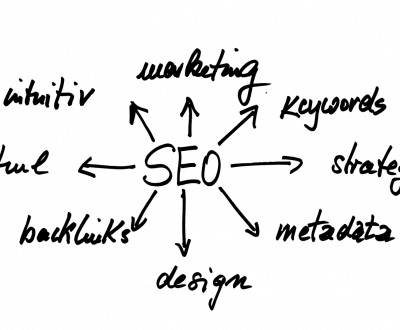Choosing the Right Platform for Your Website: A Comprehensive Comparison
- November 27, 2023
- Optimise Your Website, Web Presence Checkup, Website Health Check
In the vast world of website-building platforms, it can be overwhelming to select the one that best suits your needs. Each platform comes with its unique features, capabilities, and limitations. This article provides an in-depth comparison of some popular website-building platforms, including WordPress, Wix, Drupal, Squarespace, Shopify, E-Commerce solutions, and GoDaddy. We’ll help you make an informed decision to ensure your online presence is a perfect fit for your goals.
WordPress: The Versatile Powerhouse
What is WordPress?
WordPress is an open-source content management system (CMS) known for its flexibility and customization options. It’s favored by bloggers, businesses, and developers worldwide.
Advantages of WordPress:
- Flexibility: WordPress allows you to create any type of website, from blogs and portfolios to e-commerce stores and community forums.
- Large Community: A massive user base means extensive support and a plethora of plugins and themes.
- SEO-Friendly: WordPress offers excellent SEO plugins, making it a favorite for optimizing content.
- Cost-Effective: It’s cost-effective, especially for small businesses, as it’s free to use.
- Ownership: You have full ownership and control over your website.
Challenges of WordPress:
- Learning Curve: While user-friendly, beginners might face a learning curve.
- Maintenance: Regular updates and security checks are necessary to keep your site safe.
- Performance: Overloading your site with plugins can affect performance.
FAQ: Is WordPress suitable for e-commerce websites?
Yes, WordPress is an excellent choice for e-commerce websites, thanks to plugins like WooCommerce. It provides extensive e-commerce features and flexibility for online stores.
Wix: User-Friendly and Aesthetically Pleasing
What is Wix?
Wix is a user-friendly website builder designed for those who want to create visually appealing websites with ease.
Advantages of Wix:
- Drag-and-Drop Builder: Wix’s intuitive interface makes it easy to create stunning websites without coding.
- Templates: Wix offers a vast selection of professionally designed templates.
- Affordability: It’s budget-friendly, with free and premium plans available.
- Mobile Optimisation: Wix ensures your site looks great on mobile devices.
- Hosting Included: Wix provides hosting, simplifying your website’s setup.
Challenges of Wix:
- Less Control: While user-friendly, Wix offers less flexibility for advanced customization.
- Ads on Free Plans: Free plans include Wix-branded ads.
- Not Ideal for Complex Sites: It may not be the best choice for large e-commerce or highly customized sites.
FAQ: Can I switch my Wix website to another platform later?
Migrating a Wix site to another platform can be challenging due to its proprietary nature. It’s advisable to plan for long-term needs from the start.
Drupal: The Robust, Developer-Focused CMS
What is Drupal?
Drupal is an open-source CMS known for its robustness and flexibility, primarily used by developers and organizations.
Advantages of Drupal:
- Highly Customizable: Drupal offers immense flexibility for developers to create complex websites.
- Scalability: It’s suitable for large and complex websites with high traffic.
- Security: Drupal’s security features are robust, making it a trusted choice for enterprises.
- Community Support: A dedicated community offers help and extensive documentation.
Challenges of Drupal:
- Steep Learning Curve: It’s not beginner-friendly and requires technical expertise.
- Development Costs: Building and maintaining a Drupal site can be expensive.
- Limited Themes: It offers fewer pre-designed themes compared to other platforms.
FAQ: Is Drupal a good choice for small businesses?
Drupal is typically more suited for larger enterprises with complex needs and a budget for development and maintenance. For small businesses, simpler platforms may be a better fit.
Squarespace: Elegant Designs Made Simple
What is Squarespace?
Squarespace is a website builder known for its elegant and visually appealing templates, making it a favorite among creative professionals.
Advantages of Squarespace:
- Design Templates: Squarespace offers stunning templates designed for aesthetics and usability.
- Ease of Use: It’s user-friendly, with a simple drag-and-drop editor.
- Mobile Responsiveness: All templates are mobile-responsive.
- Integrated E-commerce: Squarespace provides e-commerce features for online stores.
- All-in-One Solution: Hosting and domain are included in the subscription.
Challenges of Squarespace:
- Less Flexibility: It’s not as flexible as other platforms in terms of customization.
- Pricing: While it offers a free trial, Squarespace can be relatively expensive.
- Limited Extensions: It has fewer third-party integrations and extensions.
FAQ: Can I use Squarespace for a blog or portfolio website?
Squarespace is an excellent choice for blogs and portfolios, particularly for users who prioritize design and aesthetics.
Shopify: E-Commerce Excellence
What is Shopify?
Shopify is a specialized e-commerce platform designed for creating and managing online stores.
Advantages of Shopify:
- E-commerce Focus: Shopify is built specifically for online stores, offering a range of e-commerce features.
- User-Friendly: It’s designed for non-technical users, making it easy to set up and manage an online store.
- Security: Shopify is highly secure, which is crucial for handling sensitive customer data.
- App Store: The Shopify App Store offers various plugins and integrations.
- Hosting Included: Shopify includes hosting and domain options.
Challenges of Shopify:
- Monthly Fees: It can be more expensive than other website builders, especially if you’re not running an online store.
- Transaction Fees: Shopify charges transaction fees for external payment gateways.
- Less Flexibility: It may not be the best choice for non-e-commerce websites.
FAQ: Can I use Shopify for a non-e-commerce website?
While Shopify is primarily designed for e-commerce, it’s possible to create non-e-commerce websites, but other platforms might be more suitable.
E-Commerce Solutions: Specialized Platforms for Online Stores
What are E-Commerce Solutions?
E-commerce solutions, like Magento, BigCommerce, and WooCommerce (for WordPress), are dedicated to creating and managing online stores.
Advantages of E-Commerce Solutions:
- Specialized Features: E-commerce solutions provide specialized tools for online retail.
- Customization: They offer high levels of customization for your online store.
- Scalability: These platforms can grow with your business.
- SEO-Friendly: E-commerce solutions typically have excellent SEO capabilities.
Challenges of E-Commerce Solutions:
- Complexity: They can be more complex and may require technical expertise.
- Customization: Extensive customization often comes with a steeper learning curve.
- Cost: Some e-commerce solutions may have significant upfront and ongoing costs.
- FAQ: Which e-commerce solution is best for a small online store?
- For small online stores, platforms like WooCommerce (for WordPress) or BigCommerce can be cost-effective and offer essential features.
- GoDaddy: A One-Stop Solution
- What is GoDaddy?
- GoDaddy is a well-known web hosting and domain registration company that also offers a website builder.
- Advantages of GoDaddy:
- All-in-One: GoDaddy provides domain registration, hosting, and a website builder in one package.
- Beginner-Friendly: It’s designed for users who want a simple and quick website setup.
- Pricing: It offers competitive pricing, including affordable entry-level plans.
- Customer Support: GoDaddy is known for its customer support.
- eCommerce: It includes e-commerce features.
- Challenges of GoDaddy:
- Limited Customization: Compared to other platforms, customization options are limited.
- Scalability: It may not be the best choice for large or complex websites.
- Ads: Free plans may display GoDaddy ads.
- FAQ: Is GoDaddy a good choice for a small business website?
- GoDaddy can be a good choice for small businesses looking for an affordable and all-in-one solution for a basic web presence.
Finding Your Perfect Platform
Selecting the right website-building platform hinges on your specific needs and goals. WordPress is renowned for its flexibility and versatility, while Wix appeals to those who prioritize design simplicity. Drupal is the go-to for complex, developer-focused projects, and Squarespace is the preferred choice for elegant design. If you’re venturing into e-commerce, Shopify or dedicated e-commerce solutions might be your best bet. For a quick, all-in-one solution, GoDaddy could be the answer.
Remember to consider factors like your budget, technical expertise, customization requirements, and long-term goals. Each platform has its own strengths and limitations, so a well-informed decision ensures your online presence aligns perfectly with your objectives.
Should you have any questions or need assistance with your website-building journey, don’t hesitate to reach out. Your online success is our priority, and we’re here to help you make the best choice to achieve your digital goals.
In a digital world brimming with possibilities, the platform you choose can be a game-changer. Make sure it’s the right one for your unique online journey.
Once you’ve chosen your Website platform the next stage is how to optimise your content, images, sitemaps and start your marketing campaign. Alternatively, you can leave it to the professionals at Smarter Wiser.
About us and this blog
We are a digital marketing company with a focus on helping our customers achieve great results across several key areas.
Request a free quote
We offer professional SEO services that help websites increase their organic search score drastically in order to compete for the highest rankings even when it comes to highly competitive keywords.
We offer a FREE Website Audit. No Charge, No Catch, simply add your website, the email address to send report. We will send you a website audit report highlighting any website issues, broken links, alt tags missing, duplicate titles etc along with a Google Analysis of your content.
Recent Posts
All Website Tags
- Advanced SEO Analytics
- AI and Machine Learning in SEO
- Algorithm Updates and SEO
- Algorithm Updates and SEO News
- Alt Text (Alternative Text)
- Analytics and Insights
- Anchor Text
- Audit
- Backlink Monitoring and Management
- Backlinks
- Black Hat SEO
- Brand Awareness
- Canonical URLs
- Content Creation Chronicles
- Content Marketing
- Content Marketing Corner
- Content Marketing for SEO
- copywriting
- CTR (Click-Through Rate)
- Digital Authority
- Digital Diagnostic
- Digital Diagnostic for SEO
- Digital Health Assessment
- Digital Marketing Trends
- Domain Authority DA
- Duplication
- E-Commerce SEO
- Email Marketing Mastery
- External Linking
- Google Core Update
- Google My Business GMB
- Heading Tags (H1, H2, H3, etc)
- Healthcare SEO Strategies
- Indexing
- Internal Linking
- Internal Linking Strategies
- International SEO Strategies
- Keyword Analysis and Optimisation
- Keyword Research and Analysis
- Keywords
- Link Building
- Link Building for SEO
- Link Building Strategies
- Link Building Techniques
- Link Building Tools and Tips
- Local SEO Spotlight
- Local SEO Strategies
- Market Research
- Marketing
- Marketing Mix
- Meta Tags (Title, Description)
- Mobile SEO
- Off-Page Optimisation
- Off-Page SEO
- On-page SEO
- Online Audit Insights
- Online Audit Insights for SEO
- Optimise Your SEO
- Optimise Your Website
- Organic Traffic
- Page Authority
- Page Load Speed
- Paid Search (PPC)
- Ranking
- Reputation Management and Online Branding
- Search Engine Optimising Service
- Search Ranking Analysis
- SEO
- SEO Analytics and Reporting
- SEO Diagnostic Lab
- SEO Evaluation Toolkit
- SEO for Beauty
- SEO for Blogs and Content Platforms
- SEO for Hair Salons
- SEO for Spas
- SEO for Startups
- SEO for WordPress Websites
- SEO Health Assessment
- SEO Health Check
- SEO Performance Checkup
- SEO Success Secrets
- SERP
- Site Performance Analysis
- Social Media Integration for SEO
- Social Media Strategies Unveiled
- Target Audience
- Technical SEO
- Technical SEO Demystified
- Video SEO for YouTube
- Web Presence Checkup
- Website Health Check
- White Hat SEO









